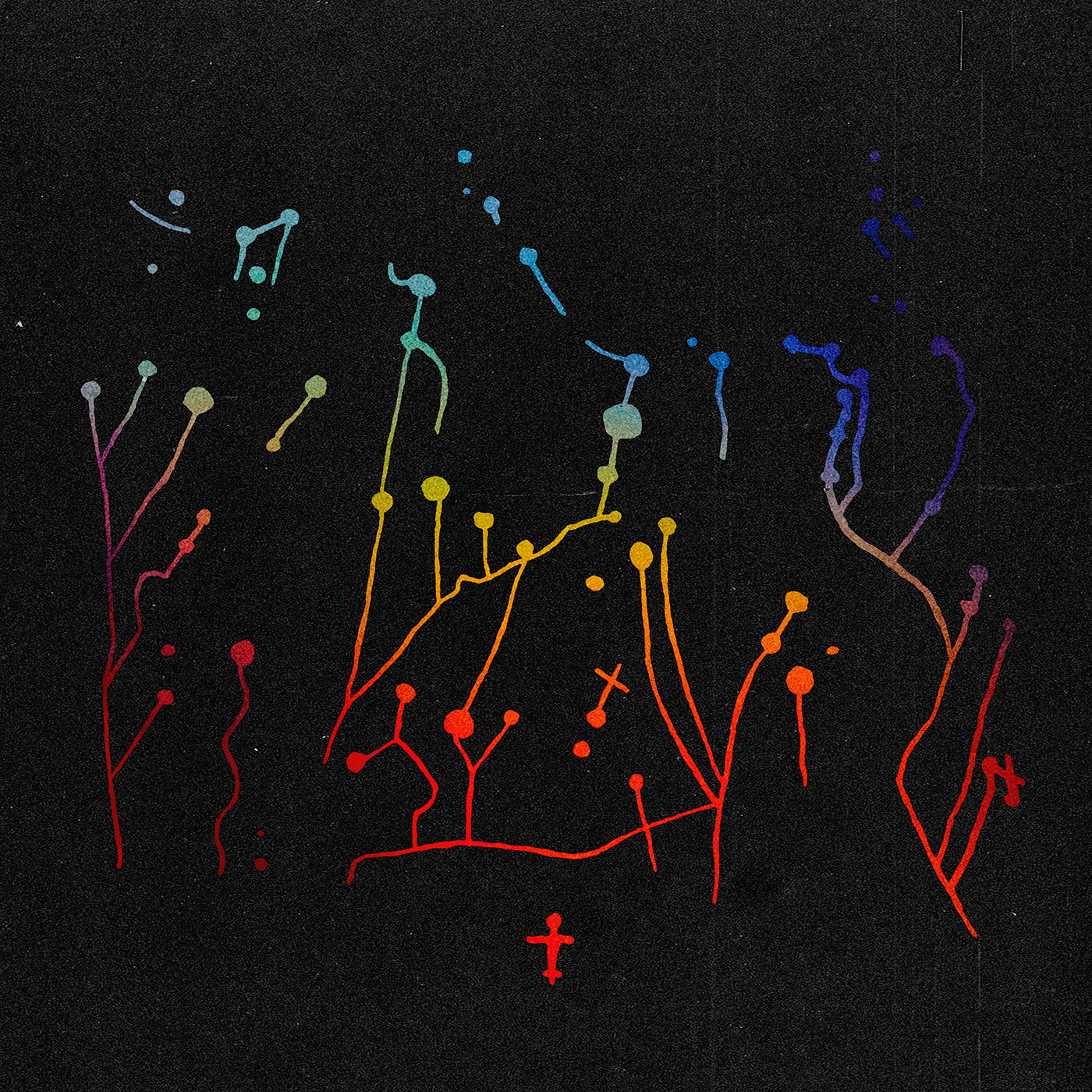Spanish producer Baiuca has finally unveiled his sophomore album Embruxo, cordially inviting the world to a pagan rave on the Iberian coast. Across 10 spellbinding tracks, the producer collides Galician folklore and mysticism with cutting edge club sounds, offering listeners a magical tour through northwestern Spain as well as the rich culture that raised him.
But don’t approach Embruxo expecting to find another Rosalía or C. Tangana flamenco-infused pop record. In fact, the genre is completely absent here. Instead, Baiuca brings to life centuries-old poetry and folk tales with booming traditional percussion, quasi-medieval flutes and witchy bonfire chants.
Galicia is a very magical place, with a strong spiritual culture.
“Galicia is a very magical place, with a strong spiritual culture,” Baiuca tells Remezcla from Madrid. “There are many rituals and legends that I felt should be the primary themes of this record. I also wanted to give a starring role to women’s voices who, in our culture, are the keepers of memory and oral histories.”
Baiuca highlights the role of ‘meigas,’ enigmatic women of Galician folklore frequently portrayed as witches and healers. To convey their otherworldly gravitas he tapped the cantareiras of Lilaina, a quartet of sisters who deliver striking vocal gymnastics on thumping lead single “Luar” and euphoric improvisations reminiscent of buyerengue on “Diaño.” Lilaina are the unofficial narrators of Embruxo. On “Conxuro,” they fall into a trance while on slowburner “Lavandeira” they bring an introspective punch and then pay homage to their trailblazing ancestors on reggaeton-flavored “Meigallo.”

While some of the album’s vocal and percussive flairs seem to channel Caribbean traditions, Baiuca is quick to point out the cultural intersections that root his choices in Galician culture. For centuries, the wet and verdant landscape has provided a backdrop for spiritual dialogues with Celtic cultures in Ireland and Scotland, while geographic proximity has allowed North African rhythms to gradually seep into the local sonic palette. It’s also not lost on him that many European producers look elsewhere for inspiration, playing into tiresome colonial cycles while ignoring their own homegrown stories.
“Latin America is certainly a source of inspiration,” he reflects, “but more in the way that I admire the work of Nicola Cruz and Chancha via Circuito, and how I aim to uplift my own culture in a similar way. For a long time, my colleagues have looked to music from the South, but northern traditions are among the most forgotten. I would love a trend where producers decided to ‘re-discover’ European sounds.”
Embruxo represents a major sonic leap for Baiuca, who hit the scene with 2018’s sample-heavy Solpor LP, followed by mellower explorations on subsequent EPs Misturas and Paixajes. Embruxo was crafted over quarantine in a small studio in Coruña, achieving a far more organic sound than on previous releases with textured percussion from folklorist Xosé Lois Romero and woodwinds by Cristian Silva. Additionally, the record’s spectral visual identity was crafted alongside filmmaker Adrián Canoura, who directed the video for standout single “Veleno” and features cinematic depictions of runes, witchcraft and gothic motifs. The clip stars avant singer Rodrigo Cuevas, who delivers the track’s soaring vocal performance in three languages (Castilian, Galician and Asturian), and underscores idiomatic minutiae as another dimension of Baiuca’s conceptual vision.
“I don’t think of myself as a cultural savior, but I have a certain responsibility to keep the language alive,” he says. “That’s why it’s so important for me to incorporate gallego into the music and my social media presence. I want to show people that even though I might be performing away from home, Galicia is always with me.”







